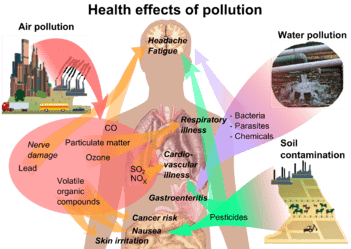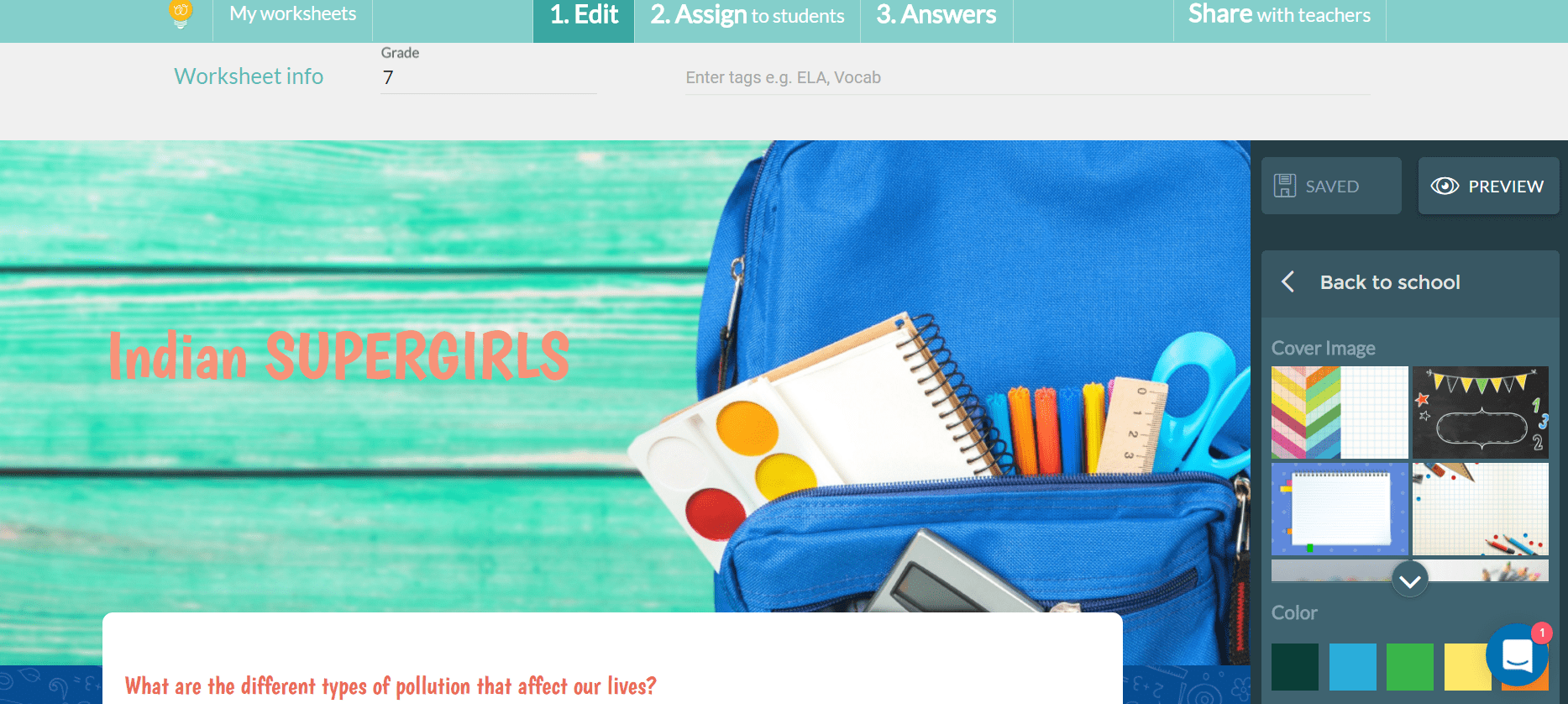Elementary school teachers in India and the USA worked together to increase awareness of global problems for their 10 and 11 year old students. Through research-based discussions, interactive video exchange, and the creation of White Papers, students explored global issues that impact their age group.
During the first few weeks of this exchange, students used the Wizer.me application to survey other people about local issues that needed attending to. There were many issues that came to mind but the one that most students agreed upon was pollution. Students felt this would be the best to choose from because they were able to act locally for a change. A second issue that arose from the students in India was child marriage. This was an unfamiliar concept for students in the USA, and sparked an awareness of girls rights and the definition of youth.

Throughout the exchange, students from India and the USA exchanged videoes with one another to learn about their communities and to each other to come up with solutions. Students were excited to share ideas and developed White Papers that documented their research and own beliefs about ways to create social and environmental change.
Grades 5&6 India and USA Spring 2016 Topics White Paper
What are the different types of pollution that affect our lives?
There are 3 types of pollution .i.e. Air pollution, Water Pollution and Noise Pollution. Air pollution is mainly caused by release of smoke from vehicles, factories, burning of agricultural residue, etc. It causes problem in breathing and can damage lungs. Water pollution is increase in harmful chemicals in the water bodies around us such as lakes, ponds, rivers, etc. It is caused by discharge of dirty water from homes and factories. The bathing of animals in ponds and dumping of garbage in rivers also pollutes water. Noise pollution refers to very high level of sound produced around us and it disturbs mental peace. It occurs due to blaring of horns in traffic, running of loud music during parties and playing of loudspeakers at high volume in residential areas.
How pollution is harmful to us?
Pollution is harmful to us in following ways: a. Inhalation of toxic pollutants is injurious to health and can cause asthma or lung cancer. b. Shortage of fresh water for drinking might lead to death of humans, plants and animals. There will be also difficulty in washing clothes, utensils and bathing purposes. c. Longer exposure to noise reduces power of concentration and can cause loss of sleep & mental trauma.
What steps can be taken to control pollution?
The steps that can be taken to control pollution are: a. Greater use of public transport b. Strict penalty for industries violating sage emission standards c. Recycling of waste and ban on direct discharge of garbage into the environment d. Use of biodegradable carry bags e. Limited time for playing of music/loudspeakers at a controlled volume
What do you understand by cleanliness?
Cleanliness means absence of garbage, dirt, waste, germs, etc. at home, in society and other places. It also includes maintenance of personal hygiene.
Why cleanliness is important?
It is important to maintain cleanliness because it helps to remain healthy. Second, it saves money that would be spent on medical treatment in case of illness.
Is your community clean? If no, please give 2 examples.
No, our community is not fully clean. First, there is lot of garbage strewn on the streets and the foul smell makes it difficult to walk. Second, drainage system is not functional and dirty water collects in pot holes on the street which becomes a breeding ground for mosquitoes.
Who is more responsible for lack of cleanliness– people or government?
People are more responsible because it is them who spread garbage in day to day life. If people are not ready to maintain cleanliness around themselves then even the government cannot force them to do so. Although the government must provide public facilities to keep areas clean and implement laws, yet it depends upon the will of people to ensure cleanliness.
What is a child marriage?
A child marriage happens when a girl is married below 18 years of age and a boy is married below 21 years of age.
Is child marriage good or bad?
Child marriage is not good because of following points: a. It deprives children of their right to education and related personality development. b. The child is not mature enough to handle responsibilities of family and take care of them. c. The girl child is not physically prepared to become a mother and it might cause body disorders.
How child marriage can be stopped?
Child marriage can be stopped by changing mindset of the society through public awareness programs such as street play, stage play, etc. Second, one must inform police if a child marriage is being performed in your locality. Third, the government could provide financial support for higher education of children belonging to poor family.
What is difference between water wastage and water scarcity?
Wastage of water happens when we use it in excess of our needs at home, school, office, factory, etc. And water scarcity is shortage of water which occurs due to wastage of water.
Give examples of wastage of water at your home?
In my home water wastage is done while washing of motorbike with a water pipe. Second, tap of wash basin is not closed while brushing teeth in morning. Third, leakage of tap water in the bathroom also causes wastage of water.
Does water scarcity affect humans only?
No, water scarcity does not affect humans only. Plants and animals are also need water for their survival. Plants require water for photosynthesis and for growth of a sapling. Similarly, animals need it to maintain their well-being and for metabolic activities.
How water conservation can be done?
Water conservation can be done in following manner:
Closure of water tap when not in use b. Use of limited quantity of water for different purposes as per the need c. Recycling of water and its use for non drinking purposes d. Storage of water in ponds/lakes during rainfall e. Punishment for people who waste water. It can be monetary penalty or social boycott for limited time period.

